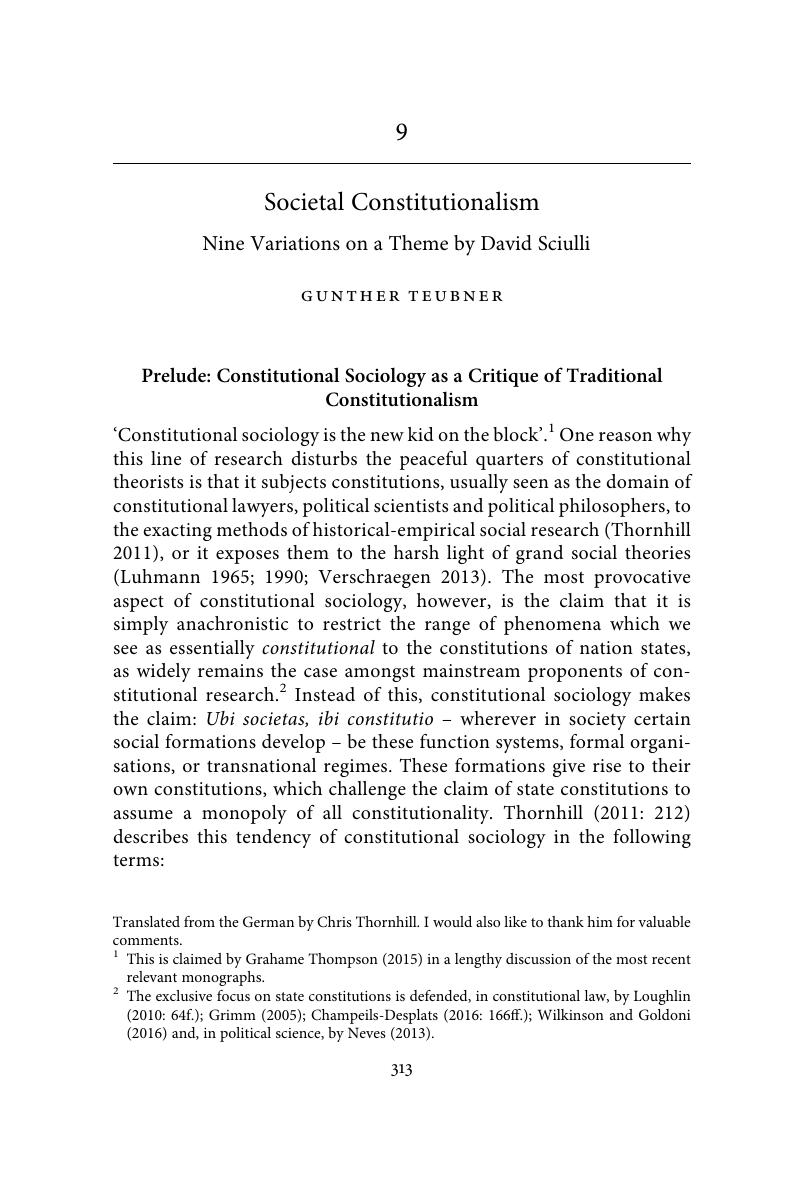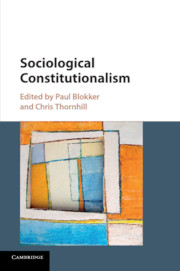Book contents
- Sociological Constitutionalism
- Sociological Constitutionalism
- Copyright page
- Contents
- Figures and Tables
- Contributors
- Acknowledgements
- Sociological Constitutionalism
- Part I National Constitutions and Sociological Method
- Part II Constitutional Sociology between the National and the Transnational
- Part III Constitutional Law and Transnational Society
- 8 From Constitutionalism to Transconstitutionalism
- 9 Societal Constitutionalism
- Index
- References
9 - Societal Constitutionalism
Nine Variations on a Theme by David Sciulli
from Part III - Constitutional Law and Transnational Society
Published online by Cambridge University Press: 06 October 2017
- Sociological Constitutionalism
- Sociological Constitutionalism
- Copyright page
- Contents
- Figures and Tables
- Contributors
- Acknowledgements
- Sociological Constitutionalism
- Part I National Constitutions and Sociological Method
- Part II Constitutional Sociology between the National and the Transnational
- Part III Constitutional Law and Transnational Society
- 8 From Constitutionalism to Transconstitutionalism
- 9 Societal Constitutionalism
- Index
- References
Summary

- Type
- Chapter
- Information
- Sociological Constitutionalism , pp. 313 - 340Publisher: Cambridge University PressPrint publication year: 2017
References
- 6
- Cited by



